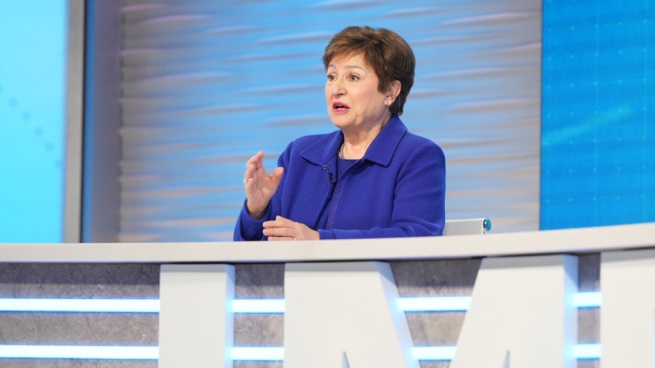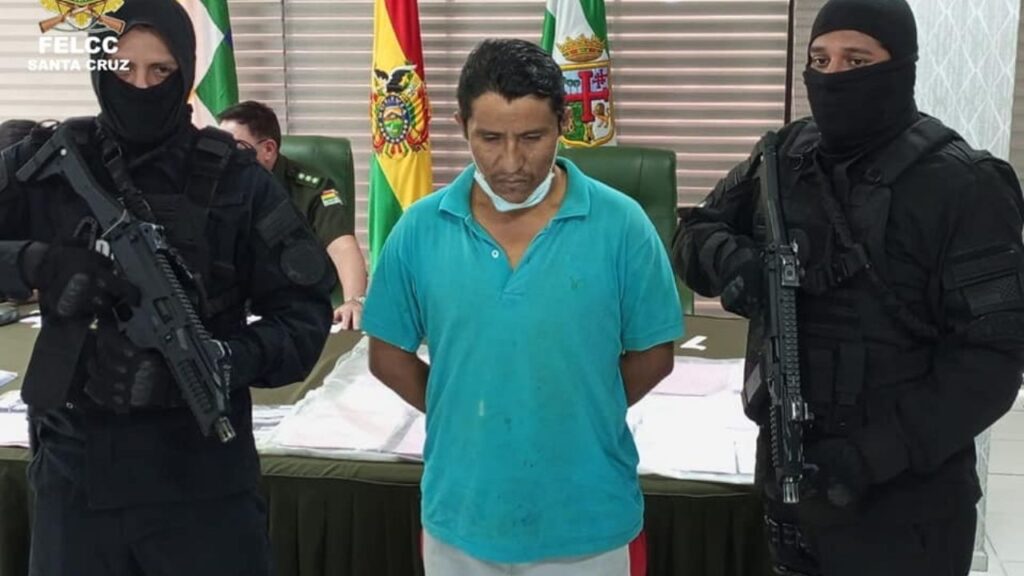The IMF Managing Director Kristalina Georgieva, said this Thursday that the body “He is very focused on obtaining the best for the country” when referring to the agreement that works with Argentina to restructure a debt of US$45,000 million contracted in the failed program signed in 2018.
In a virtual meeting with international journalists from Washington DC, United States, Georgieva stated that “there was no alternative to an agreement” with Argentina and assured that the main focus of her team is “to get the country out of this very dangerous path of high inflation,” according to the AFP Agency quote from the talk with the press.
“What is the alternative? The alternative is nothing,” said the IMF chief in her first statements to the press after the announcement of the agreement with Argentina last Friday, adding: “Our team is very focused on getting the best for the country, with the country”.
“Let’s focus on reaching an agreement and then sticking to it so that we see improvements in Argentina and not solve all the problems at once,” Georgieva said, stating that without a program derived from the agreement “poverty would increase.”
#LAST MINUTE IMF chief warns that there is no “alternative” to the agreement with Argentina #AFP pic.twitter.com/0RJmO72EJS
— Agence France-Presse (@AFPespanol) February 3, 2022
Regarding the negotiations, he pointed out that the teams had to “calibrate the program so that it could be implemented”, while assuring that the great challenge is “to lower inflation”.
Georgieva stressed the importance that “the plan is based on realistic assumptions that not only depend on the expected scenario but also take into account the risks. You must recognize the limits of the potential to make changes in Argentina in the coming years.”, as highlighted by Bloomberg agency.
Tax and spending changes are “two areas of structural conditionality that would come in the deal at the staff level,” Georgieva told reporters at the virtual news conference. “Our main goal is to get Argentina off this very dangerous path of high inflation.”
In relation to energy subsidies, he maintained that “they have been quite generous, not only for the poor in Argentina.”
Last week’s deal announcement
Last week, Argentina and the IMF announced that they had reached an agreement to renegotiate the $44 billion debt, although It remains to define details that will demand the coming weeks.
According to AFP, the head of the Fund said that these talks offered a path forward for Argentina. “Our team is very focused on obtaining the best for the country,” said the head of the IMF, avoiding speculation about what would happen if the agreement does not receive the support of Congress.
“Obviously we will do our part in terms of participation to get to the details of the program,” said Georgieva and advanced that “There are a few weeks of hard work ahead for both teams.”
This is the first time that Georgieva speaks about the Argentine case, after it was announced that both parties have begun a path of understanding in order to reach a refinancing of the debt that the country maintains with the multilateral organization.
Guzman’s word
Economy Minister Martín Guzmán, announcing the agreement on Friday, explained that the Understanding Program with the IMF will have an initial extension of “two and a half years”, a term that will be extended to ten years when “the economic and financial policy memorandums” are completed, which will lead to an Extended Facilities agreement.
In this way, in the next two and a half years the IMF will carry out quarterly reviews to execute the disbursements and from then on the country will begin to pay the maturities within the framework of an Extended Facilities loan (EFF, for its acronym in English).
Guzmán said that the disbursement schedule and the amounts will be defined only when the memorandum of agreement and the respective Letter of Intent are completed.
the deal
Among the points of understanding, an agreement was reached on the fiscal path, and on monetary and inflation policies, which allowed Argentina to reach a policy agreement with the IMF without adjustment policies, with a fiscal policy that does not inhibit the continuity of the recovery.
Among the fiscal goals, it was proposed that for the year 2022 a primary fiscal deficit of 2.5% of GDP is projected; for 2023 of 1.9%; and for 2024, 0.9%.

















